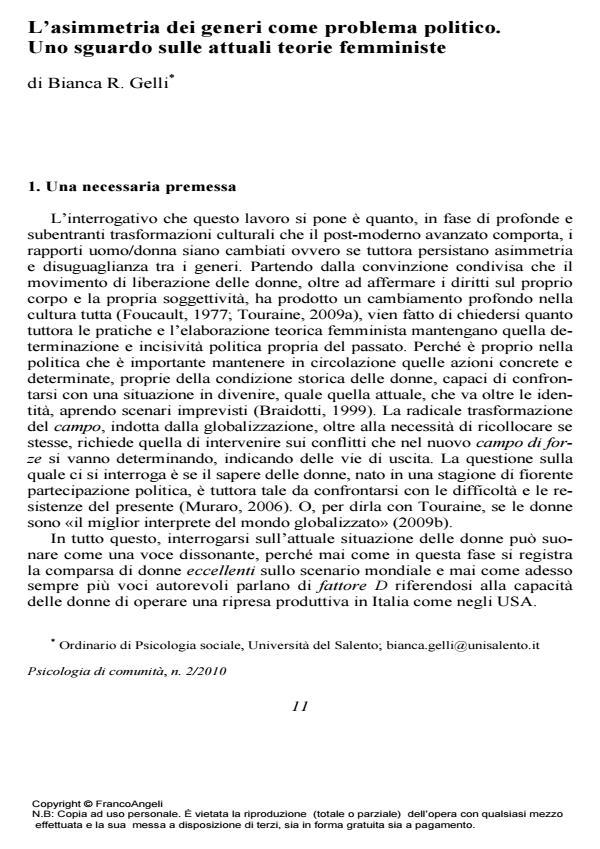The gender asymmetry as a political issue. A look into the actual feminist theories
Journal title PSICOLOGIA DI COMUNITA’
Author/s Bianca R. Gelli
Publishing Year 2011 Issue 2010/2
Language Italian Pages 10 P. 11-20 File size 488 KB
DOI 10.3280/PSC2010-002002
DOI is like a bar code for intellectual property: to have more infomation
click here
Below, you can see the article first page
If you want to buy this article in PDF format, you can do it, following the instructions to buy download credits

FrancoAngeli is member of Publishers International Linking Association, Inc (PILA), a not-for-profit association which run the CrossRef service enabling links to and from online scholarly content.
Our discourse, drawing on feminist theory, focuses on the man/woman asymmetry which we can still find in the private sphere as well as in several social fields in spite of cultural and political transformations. Given as stated the incoercible man/woman difference, there are two theoretical paths along which the A can move, passing from one to the other: - starting from sexual difference, we might highlight a space in-between where dialogue and encounter with the other can be articulated giving the I/You in the dual Us. This, marking a shift from the individual relationship to the one of the wider community, is a prelude to a politics of pacification and democracy (Irigaray); - considering the difference as sexuate difference, in a new form of materialism, in the recovery of the body as embodied mind, we might identify the place of enunciation of the word Woman, as "becoming-subject" (Braidotti). The deep transformations of the postmodern give as a result the achievement of a utopia i.e. of women becoming the majority and the others becoming others from man, which is currently in crisis.
Keywords: M/W asymmetry, space of dialogue/desire, Us/Duality, democracy, bodily neo-materialism, becoming-subjects
Bianca R. Gelli, L’asimmetria dei generi come problema politico. Uno sguardo sulle attuali teorie femministe in "PSICOLOGIA DI COMUNITA’" 2/2010, pp 11-20, DOI: 10.3280/PSC2010-002002